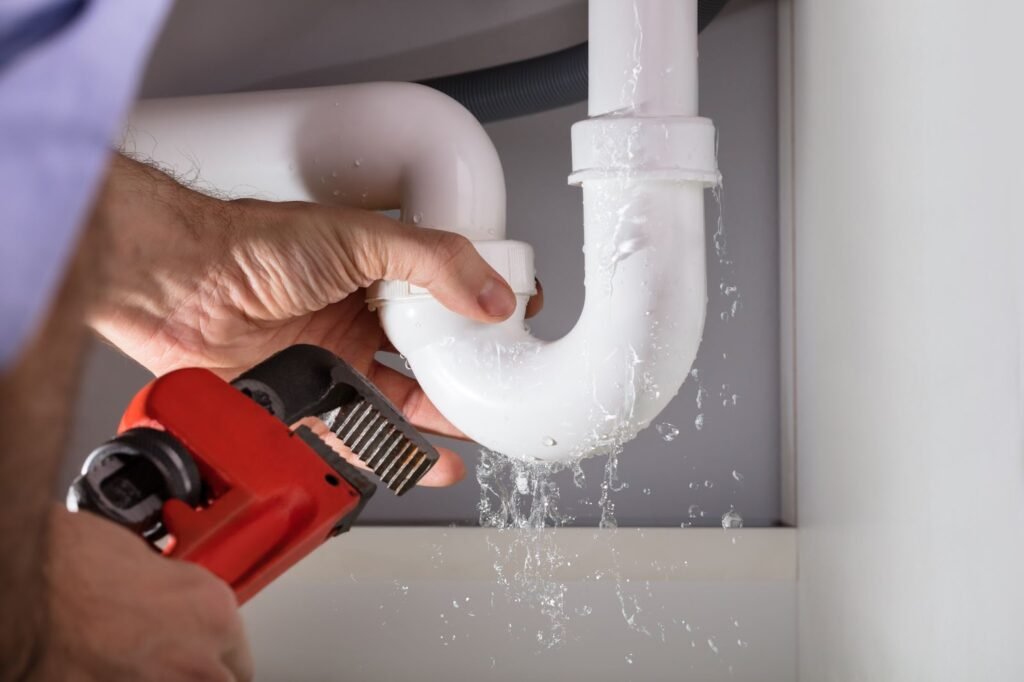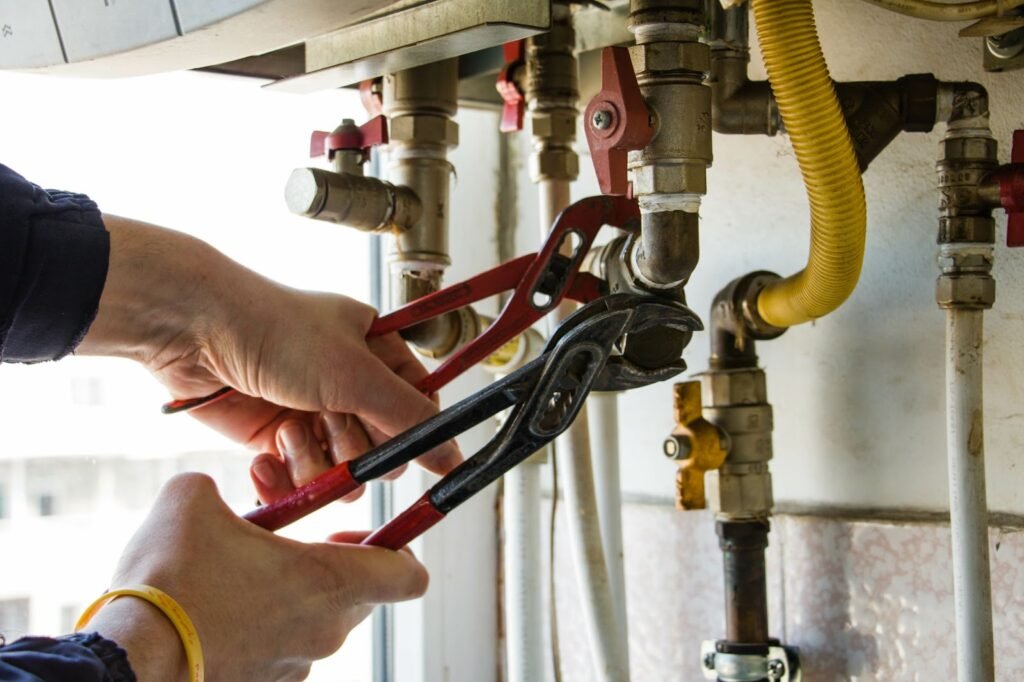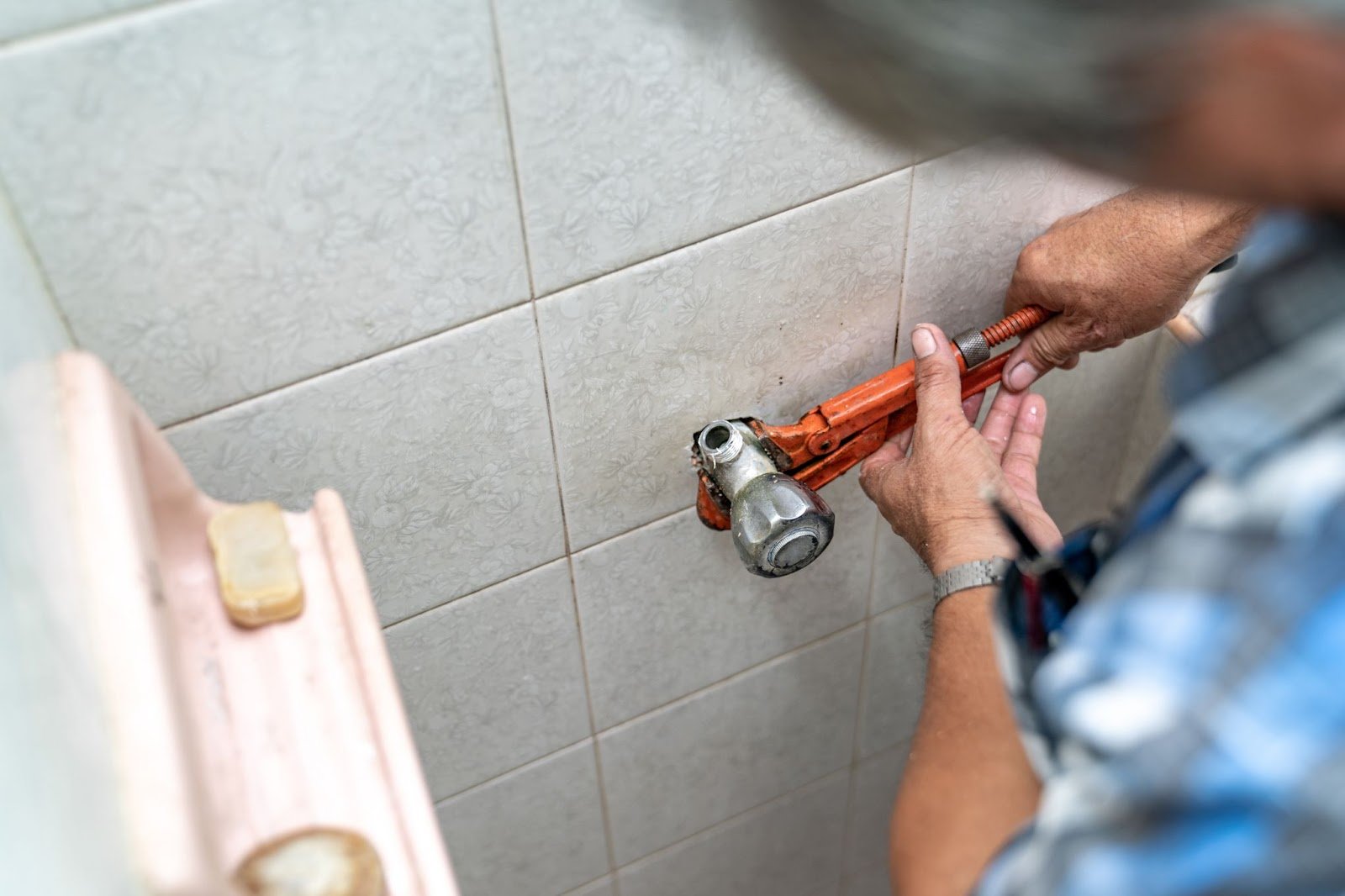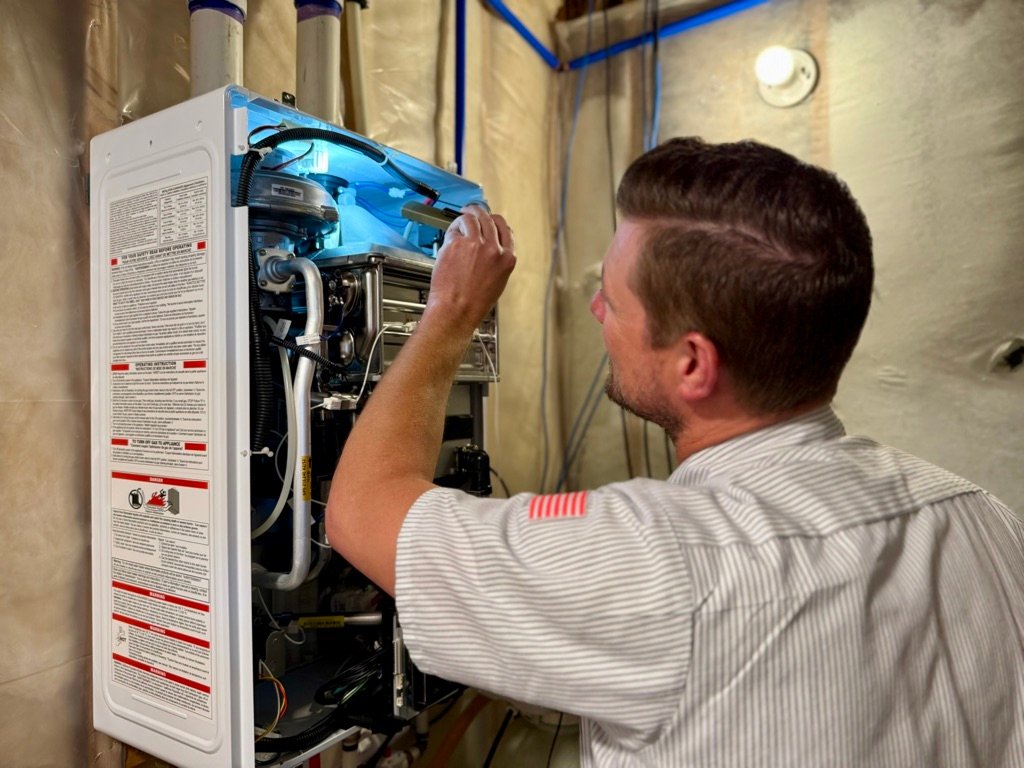When plumbing repairs are needed and a water pipe breaks or begins to leak, it’s a major headache. Homeowners face the decision: should they patch up the damaged pipe or replace it entirely? Figuring out the best option often feels overwhelming. Water pipe repairs can seem complicated, but making the right decision may save time, money, and stress down the line.
The decision to patch or replace a pipe is not always straightforward. Factors such as the pipe’s age, condition, and location play a huge role in the process. In this article, we’ll break down the key factors to consider when deciding whether to repair or replace your water pipes.
Understanding water pipe repairs
Before choosing between patching or replacing a water pipe, it’s important to understand what each option means. Pipe repair typically involves sealing a leak or fixing a small section of the pipe.
Patching is usually a temporary solution to stop the leak long enough to prevent further damage. It doesn’t address the underlying issues that caused the leak in the first place.
On the other hand, replacing the pipe entirely involves removing the damaged section and installing a new one. This is often a more permanent solution and can prevent future issues, especially if the existing pipe is old or prone to failure.
Assessing the damage
To determine whether you should patch or replace your water pipe, start by evaluating the extent of the damage. Is the leak localized to a small section of the pipe, or has it spread throughout the entire pipe? If the damage stays confined to a small area, you might be able to patch the pipe.
However, if the pipe has multiple leaks, cracks, or signs of corrosion, replacement is likely the better option.
For example, if your pipe has a small hole or crack in a specific spot, patching it might work as a quick fix. However, if there are several leaks or widespread corrosion, the repair cost will likely keep increasing. In cases like this, replacing the pipe may actually save you money in the long run.
Pipe age and condition
The age and overall condition of the pipe play a huge role in determining whether to patch or replace it. Older pipes are more likely to develop multiple issues over time. If your pipes are more than 20 years old, chances are they’ve undergone wear and tear.
Patching them multiple times could become an ongoing cycle of repairs, costing you more money and stress over time.
In contrast, a newer pipe may only need a small repair if the issue is isolated. If the pipe is in relatively good condition, patching it could be a quick, cost-effective solution. However, if you’re dealing with a series of persistent issues in an older system, it might be best to replace the entire pipe and prevent future problems.
Location of the damage
The location of the damage is another factor to consider. If the leak is in a pipe that’s easily accessible, patching it may be a simple job. But if the leak is in a difficult-to-reach spot — such as inside a wall or underground — fixing the problem becomes much more complicated.
In some cases, access to the damaged pipe may be limited, and patching may be your only viable option. However, if you find yourself constantly patching pipes in hard-to-reach areas, replacing the entire system may make more sense. While it may cost more upfront, it could eliminate the need for ongoing repairs and provide a permanent solution.
The cost factor
One of the biggest factors in the decision to patch or replace your water pipe is cost. Patching a pipe is often cheaper in the short term. You won’t have to pay for new materials or extensive labor. For minor issues, this could be the ideal solution to keep costs down.
However, replacing the pipe tends to have higher upfront costs. The process involves more materials, more time, and potentially more labor. While it’s a more expensive option, replacing the pipe is usually the best long-term investment. You avoid repeated repairs and give your plumbing system a fresh start.
The key is to balance the cost of ongoing repairs with the investment in a replacement. If your pipe is likely to need more repairs in the near future, replacing it might be the most economical choice in the long run.

The impact on your home
Consider how the decision will affect the rest of your home. Will you need to tear up walls, floors, or landscaping to repair or replace the pipe? Sometimes, patching a pipe is easier and requires less disruption to your home. But if a repair involves significant construction, the cost and mess might outweigh the benefits.
Replacement, on the other hand, could require more extensive demolition. If the damage is widespread, you may need to replace entire sections of your plumbing, which could involve tearing up floors, drywall, or even digging up the yard. Though it may be a bigger job, it prevents more costly, disruptive repairs down the road.
When professional plumbing makes a difference
Although it might be tempting to tackle pipe repairs on your own, it’s best to call a professional plumber. Professional plumbing services can offer expertise that saves time, money, and frustration. A licensed plumber will assess the damage, decide on the best course of action, and complete the job safely and correctly.
In some cases, homeowners attempt to repair water pipes themselves, only to end up causing more damage. Water leaks are tricky, and even a small mistake could lead to more significant problems. A professional plumber will bring the necessary tools and skills to the job and help you avoid costly mistakes.
Pipe material matters
Not all pipes are created equal. The pipe material is significant in whether it’s worth patching or replacing. For example, copper pipes are known for their durability and longevity. If a copper pipe has a small leak or hole, patching may be sufficient. However, if the pipe has extensive corrosion, replacing it is likely the best option.
On the other hand, older galvanized steel pipes are prone to rust and corrosion. If you have this type of pipe and it’s starting to fail, a complete replacement is often the more reliable choice. You can generally repair PVC pipes easily, but they may crack or break over time, especially when exposed to extreme temperatures.
Understanding the material of your pipes can help you determine the most effective and long-lasting solution.
How to know when to call a plumber
A leaky or broken water pipe often gives you a clear signal that something’s wrong. If you notice low water pressure, discolored water, or damp spots around your home, it’s a sign that there may be a pipe issue. At this point, it’s time to call a professional plumber for an inspection.
The plumber will assess the situation, look for signs of damage, and give you expert advice on whether patching or replacing is the best solution. They will also explain the cost, timeframe, and potential disruptions involved in the repair process.

The final decision
When deciding between patching or replacing a water pipe, it’s important to consider the extent of the damage, the age of the pipe, and the costs involved. If the pipe is old, damaged, and has multiple issues, replacement is often the best choice. If it’s a small leak in a newer, more accessible pipe, patching might be a viable, cost-effective solution.
Working with a professional plumber ensures the decision-making process is in good hands. Whether you choose patching or replacing, a professional plumber will provide the necessary expertise and resources to get the job done right.
The best course of action for water pipe repair depends on several factors, including the damage, pipe age, location, and cost. Weigh the pros and cons, and consult a professional plumber to determine which option will give you the most reliable and cost-effective solution.
Whether you decide on patching or replacing, the right plumbing repairs will keep your water system running smoothly for years.
Keep your plumbing in top condition with Valley Home Services!
Our team provides expert advice and dependable solutions to prevent common plumbing repair issues. From regular upkeep to emergency repairs, we make sure your system functions flawlessly.
Avoid disruptions caused by plumbing problems — schedule your appointment with Valley Home Services today and enjoy worry-free water flow throughout your home!





